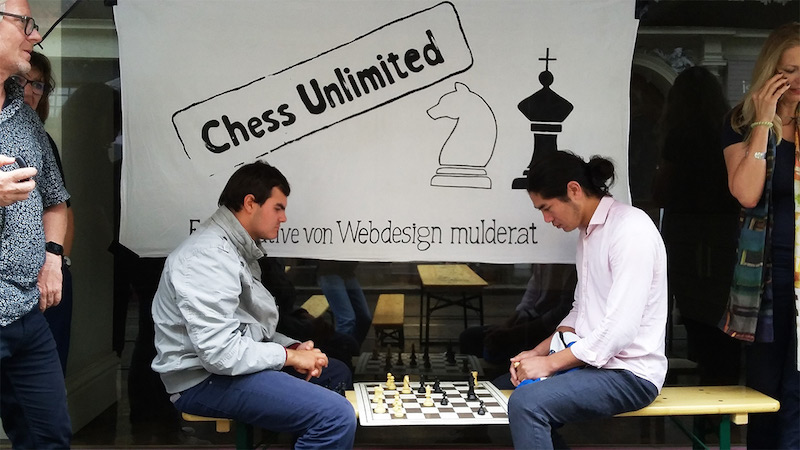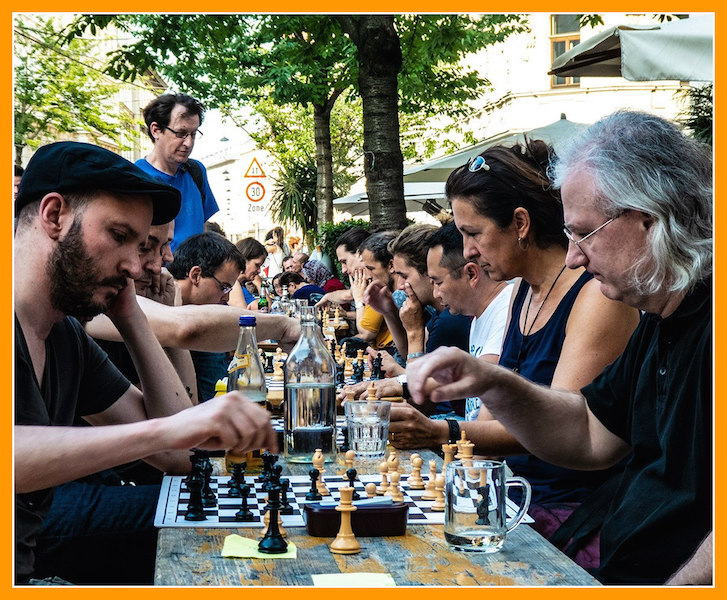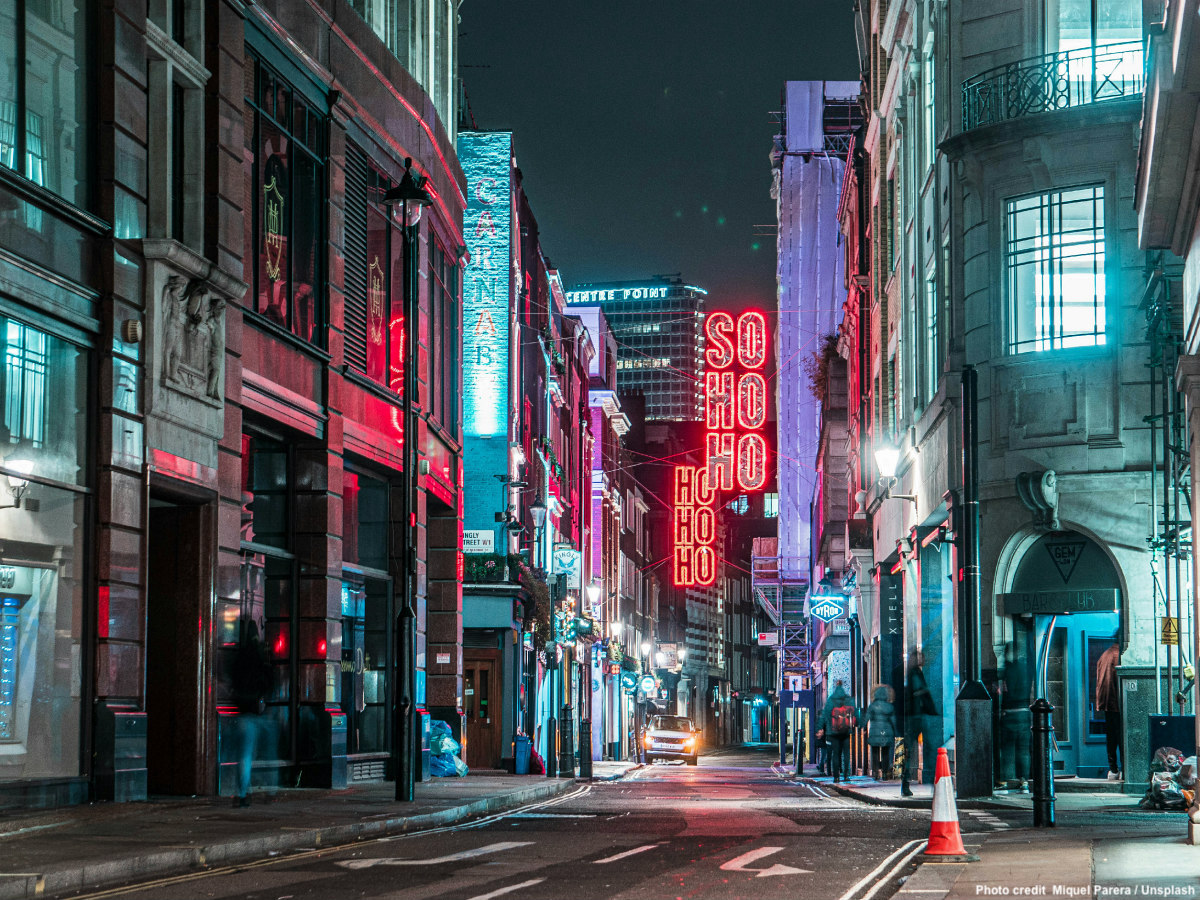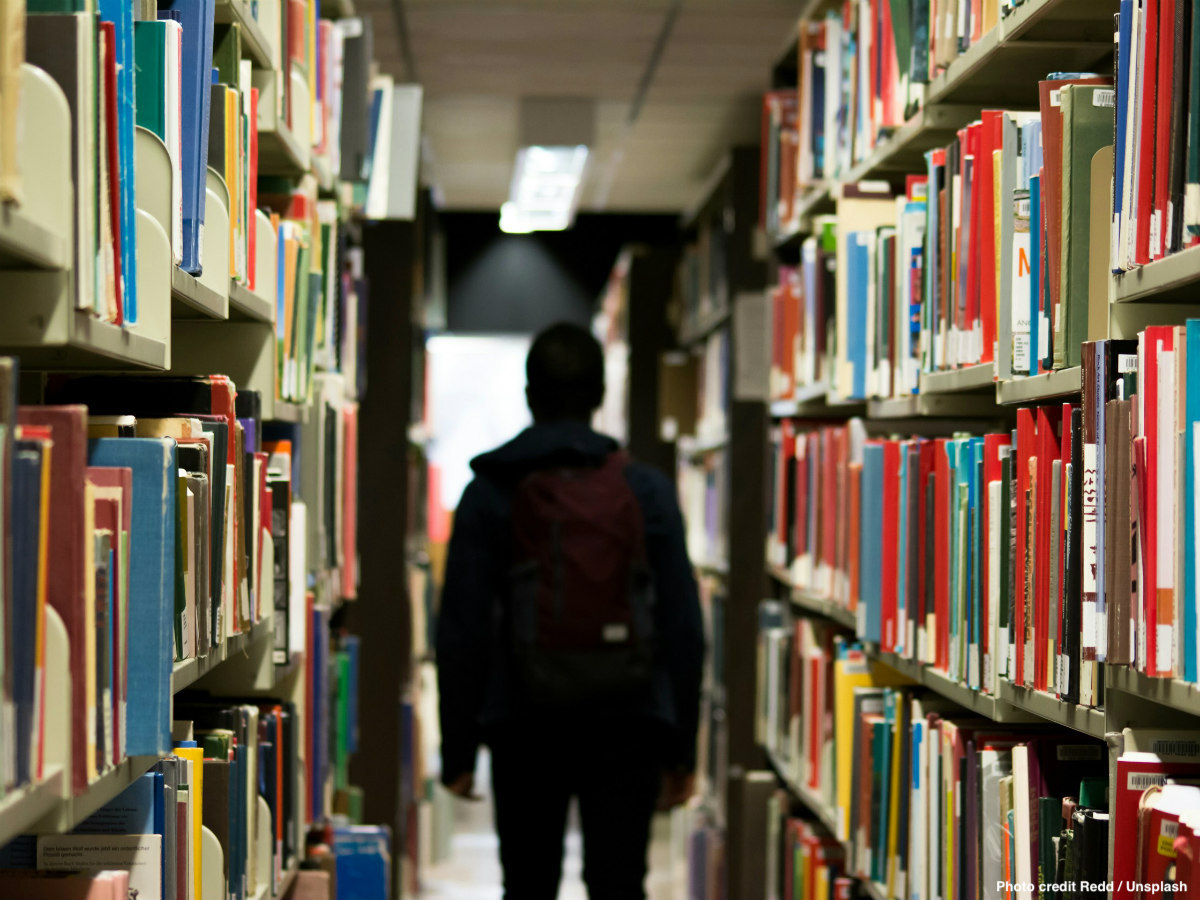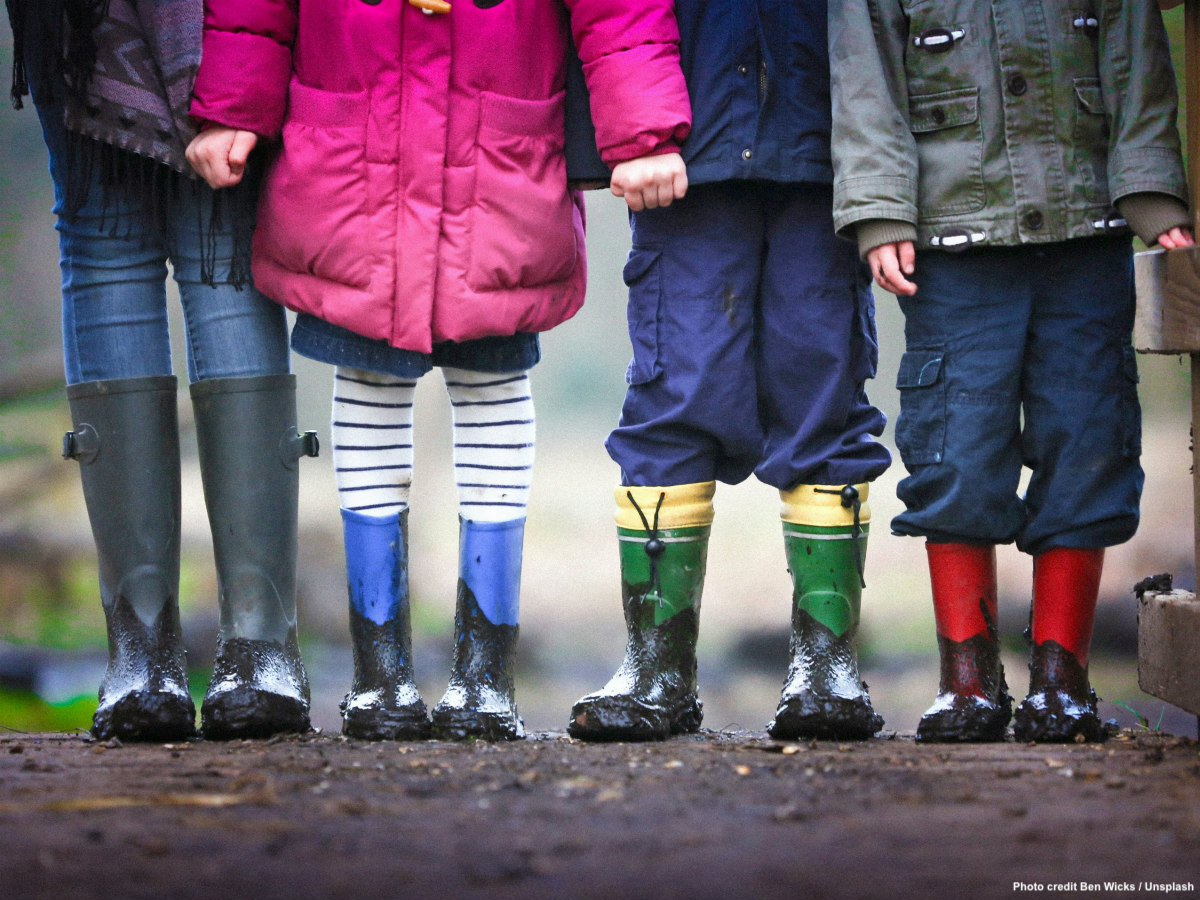Can a play be a place of respect in the city? When playing, everyone is the same. In chess the saying goes ‘don’t underestimate anyone’. You can’t overestimate a winning position either. For Kineke Mulder, the founder of the initiative called Chess Unlimited, Chess is more than a play; it is a universal language for social cohesion.
In the city of Vienna Kineke organizes pop-up chess games in neighbourhoods, small as well as large chess events, in Viennese coffeehouses and on the streets. She wants to bring chess back to the urban life of Vienna. ‘Because chess gets people closer and comes without language’, explains Kineke. ‘Chess knows no age, occupation or origin’.
In fact chess belongs to Vienna. The city was the world’s chess stronghold almost exactly one hundred years ago thanks to the emergence of the Viennese coffeehouses and the influx of immigration into the city.
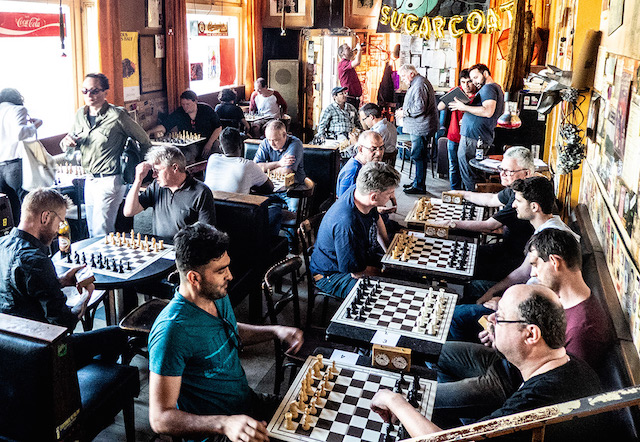
As Michael Ehn, an Austrian bookretailer and chess historian, puts it in his book ‘Geniales Schach im Wiener Kaffeehaus 1750-1918’, ‘In the game of chess, which was understood as a game of enlightenment, and in the coffeehouse as the ideal urban place of enlightenment, discrepancies were temporarily overcome. Here it was a unique situation in history, which brought together the most significant scientists, rich patrons, simple chess friends and grandmasters of the game at the chessboard’.
‘We want to make the game visible again in the urban space. At neighbourhoods on the streets, in the park, coffee houses, department stores, … you name it’, says Kineke excitedly.
Kineke is Dutch from Groningen and lives in Vienna. Already at the age of six she learned the rules of chess in elementary school being impressed by her mother’s friend, who was so passionate about chess.
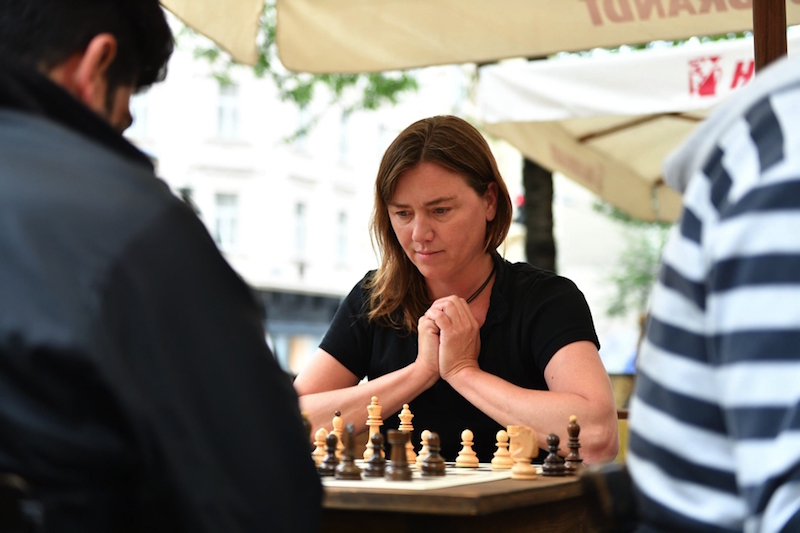
Kineke understood well the meaning of chess when she was a child. She used to play in a chess club among much older people. But she was tolerated.
And tolerance was the starting point of her initiative Chess Unlimited. When the Syrian war escalated in 2015, hundreds of refugees arrived at the central station in Vienna; some to stay some to continue their journey.
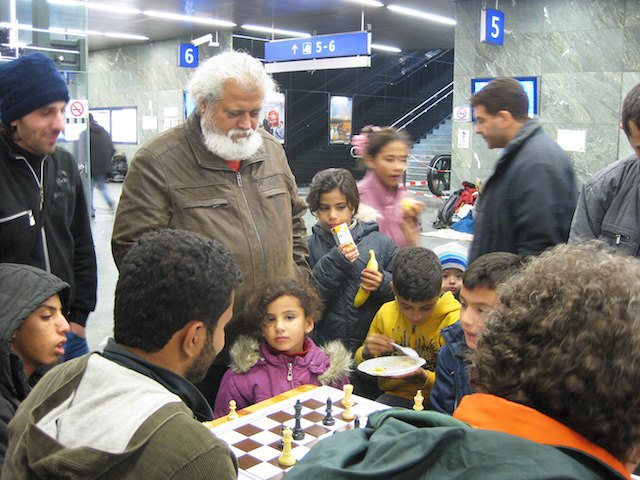
They were completely exhausted and psychologically devastated. They have lost their homes. The citizens of Vienna spontaneously head to the central station with food, drinks, toys for kids, medical assistance, etc. Kineke did something different. She, together with a friend, went to the central station with two chessboards under her arm.
‘Sometimes you make that bold step, which takes you on a greater journey. I had hardly placed the boards on one of the tables, set up the pieces, and people started to play’, remembers Kineke. ‘A father sat completely immersed in the game, maybe the first time in weeks or even months without worry lines on his face, which was obviously calming his children too. Playing was a kind of release’.
After that day Kineke continued helping unaccompanied young refugees, who were experiencing high degrees of anxiety, to focus and relax. Playing chess can stimulate deep concentration. ‘It is quite amazing to see how much positive energy playing chess can activate’, says Kineke.
Currently she organizes chess games in Vienna connecting migrants with locals through playing. Chess builds a space for dialog and respect between different ages and cultures. It is a great way of encouraging heterogeneous social interaction.
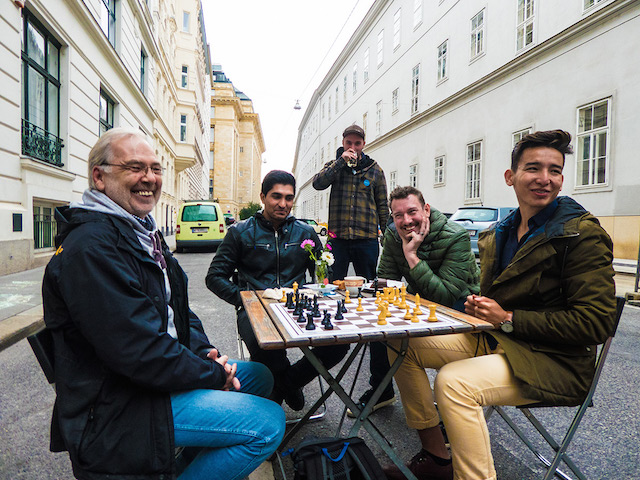
Julian Baggini wrote in his article at the Guardian Cities that ‘the city that plays together, stays together’. Play is a human response to the coldness and anonymity of the urban environment.
Actually, some initiatives in cities are already working with the concept of a more playable city to achieve a more cohesive and human urban future. For instance, the organization Playable City ‘puts people and play at the heart of the future city creating connections – person to person, person to city’.
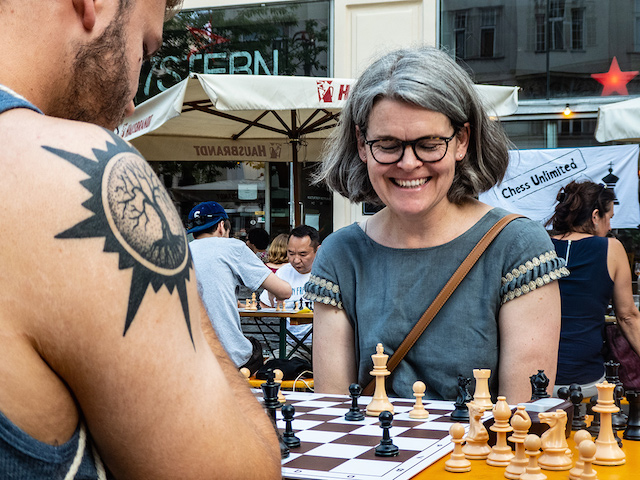
But playing chess is especially strong at enhancing social cohesion. It needs intensive presence. And that presence does not demand on physical condition but a mental farsighted thinking including thinking about others.
It is also important at increasing problem-solving skills. A chess match requires fast thinking and problem-solving on the fly, because your opponent is constantly changing the parameters.
In the end, chess is refreshing and expands horizons for people. Its potential for a more cohesive city is unlimited.
